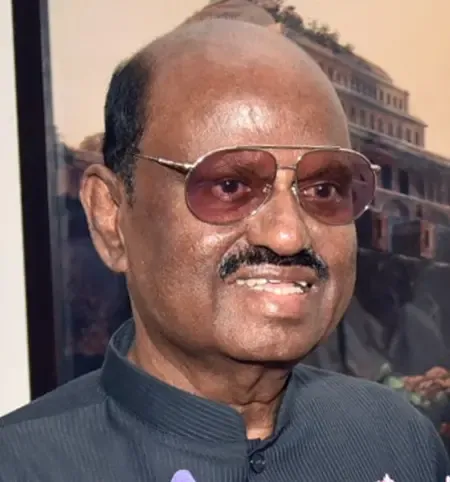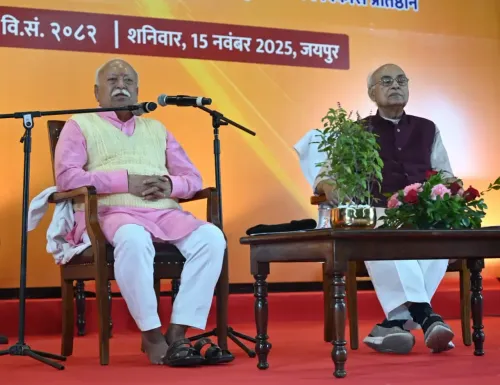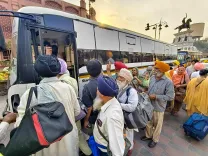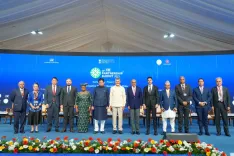Parliament Greenlights Immigration and Foreigners Bill-2025
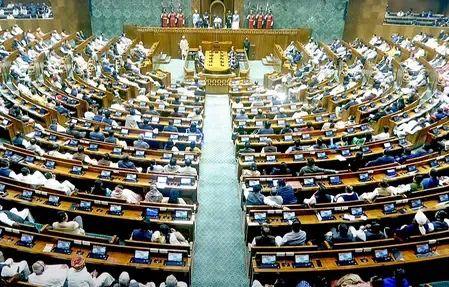
Synopsis
Key Takeaways
- Immigration and Foreigners Bill
- Enhanced security measures included.
- Aim to strengthen national security and economy.
- Concerns raised over potential impact on tourism.
- Legislation to regulate foreigner’s stay and movement.
New Delhi, April 2 (NationPress) The Parliament on Wednesday gave its approval to the Immigration and Foreigners Bill, 2025, which aims to regulate the immigration, entry, and stay of foreigners in the nation. The Rajya Sabha endorsed the Bill following a discussion, which had already seen its passage through the Lok Sabha.
A significant component of the Bill is the initiation of enhanced surveillance and security measures.
Previously, Home Minister Amit Shah emphasized the Bill's significance in the Lok Sabha, stating: "It will fortify the country's security and economy, create opportunities to internationalize our education system and universities, establish a solid groundwork for research and investigation, and position India as the leader globally in every sector by 2047."
He noted that immigration is not an isolated matter, as many national issues are directly or indirectly associated with it. Knowing who enters our borders, their duration of stay, and their purpose is crucial for national security.
Earlier on that day, the Immigration and Foreigners Bill, 2025, was introduced in the Rajya Sabha by Minister of State for Home Nityanand Rai.
During the discussion, Sanjay Raut, a leader from Shiv Sena (UBT), remarked that while no one wishes to transform the country into a "Dharamshala" (a shelter for all), it should not devolve into a prison either. "For the past decade, the citizens of this nation have been treated like inmates. Now, this legislation seems to extend that same treatment to foreigners arriving with valid visas and passports," he stated.
Raut cautioned that certain provisions in the Bill could discourage tourism.
"We do not want illegal immigrants, whether they are from Bangladesh, Rohingya, Americans, or Europeans. When former US President Trump deported Indians living illegally in America, they were shackled and sent back on military planes. If an American is residing illegally in India, they should be deported in the same way," he remarked.
He asserted that over three crore Bangladeshis and Rohingyas are living in the country illegally and need to be removed.
Critically analyzing Section 7 of the Bill, he pointed out that it grants the Central government the authority to dictate where a foreigner can stay, travel, and whom they can meet.
"Under this provision, even foreign delegations, journalists, or diplomats would require government consent to meet notable leaders in India. If permission is denied, such gatherings cannot occur," he contended.
Raut also highlighted that past terrorist infiltrations did not occur through legal immigration pathways. "Ajmal Kasab and his associates did not enter with valid passports; they came illegally by sea, undetected. While strengthening the law is important, this bill should be referred to the standing committee for further examination," he urged.
In contrast, BJP Rajya Sabha MP Ram Chander Jangra defended the Bill, underscoring the significance of national security. He mentioned that previous immigration regulations had shortcomings in securing borders and preventing illegal infiltration.
"The new Bill simplifies entry into India, travel documentation, visa requirements, and the denial of entry where appropriate. Our goal is to position India as a hub for medical, educational, and manufacturing activities while ensuring that foreigners visit for legitimate reasons. National security is our top priority, and officials must possess the authority to scrutinize travel documentation and deny entry when necessary," Jangra stated.
He noted that India provides e-visas to citizens from 169 countries but stressed the need to empower authorities to protect sovereignty and security. "If there exists a threat, officials must have the right to reject entry to foreign nationals," he concluded.


